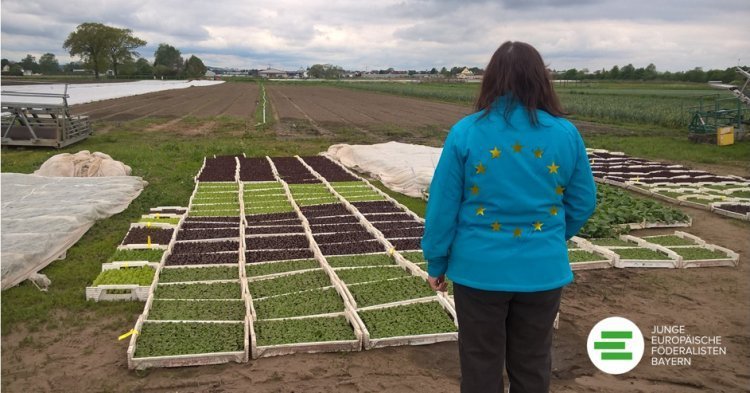“Hunger is the most serious obstacle to the democratic development of a democratic Germany,” Konrad Adenauer, later German Chancellor, noted with concern over the plight of the war-torn cities in 1946. In this spirit of the post-war hunger years, the Common Agricultural Policy (CAP), one of the EU’s oldest policy areas, was born. Today, support for agriculture is one of the largest items in the European budget, accounting for 59 billion euros or just under 40% of total spending. For most people in the European Union these days, however, hunger is something only known from stories of the past. In 2017, the production value of the European agricultural market amounted to 427.4 billion euros. The cost of food is cheaper than ever before. But mind that nature, the environment, farmers and citizens pay for these low prices in other ways.
The great challenge of the future will be to combine economy and ecology.
For many years there has been a massive decline in bee colonies, also known as colony collapse disorder (CCD) among experts. In addition to the intensive use of fertilisers and pesticides, increased monoculture and decreased flower diversity are suspected to be the main causes for this. Yet the bee only stands symbolically for a decline of the insect population that is happening worldwide. This is all the more alarming when one considers that a third of the world’s food depends directly on the pollination activities of various insects.
At the same time, the intensive cultivation of arable land and so-called “agricultural factories” with thousands of animals are threatening our basis of existence. Time and time again, alarmingly high nitrate levels are measured in the groundwater. While on the one hand the size of certain agricultural enterprises continues to increase, small and very small farmer holdings are struggling to survive economically.
Current funding practices favour large producers as the amount of aid received is mainly based on size. But in the end, it is consumers who will pay a price for this cheap food. Low prices, especially for meat products, can only be maintained by the extensive use of antibiotics and hormones, with consequences for human health.
The organisers of the petition are demanding that from 2025 onwards, 25% of farmland should be farmed in an ecological and sustainable way; and 30% from 2030 onwards. This particular demand is viewed critically by farmers, arguing that ‘greening’ provisions already oblige them to observe ecological principles in order to receive CAP funding. A legal obligation to observe higher standards would endanger further existential subsidies. Their sympathisers agree that the petition does not fully take the farmers’ situation into account and say that signing it is just an excuse to ease one’s ecological conscience.
Maybe a change in thinking will happen when it comes down to the food we eat. It is clear that agriculture will play an increasingly important role in mitigating the consequences of climate change. The question as to whether a legal obligation or incentives to act voluntarily will be the more effective strategy can only be answered through a lively exchange between citizens, farmers and politicians. The petition for a referendum on biodiversity has succeeded in starting an important debate surrounding the issue of compatibility between the economy and ecological agriculture.
It is too easy to place all responsibility on one side: Let’s not forget that 173 kilograms of food are still thrown away annually per person. Petitions and referenda cannot offer a solution per se but they do provide a lot of food for thought, so that people can eventually take action themselves. Irrespective of how Bavaria may decide, responsible food management and taking care of one’s own diet must assume a critical role in education and politics.



Follow the comments: |
|
